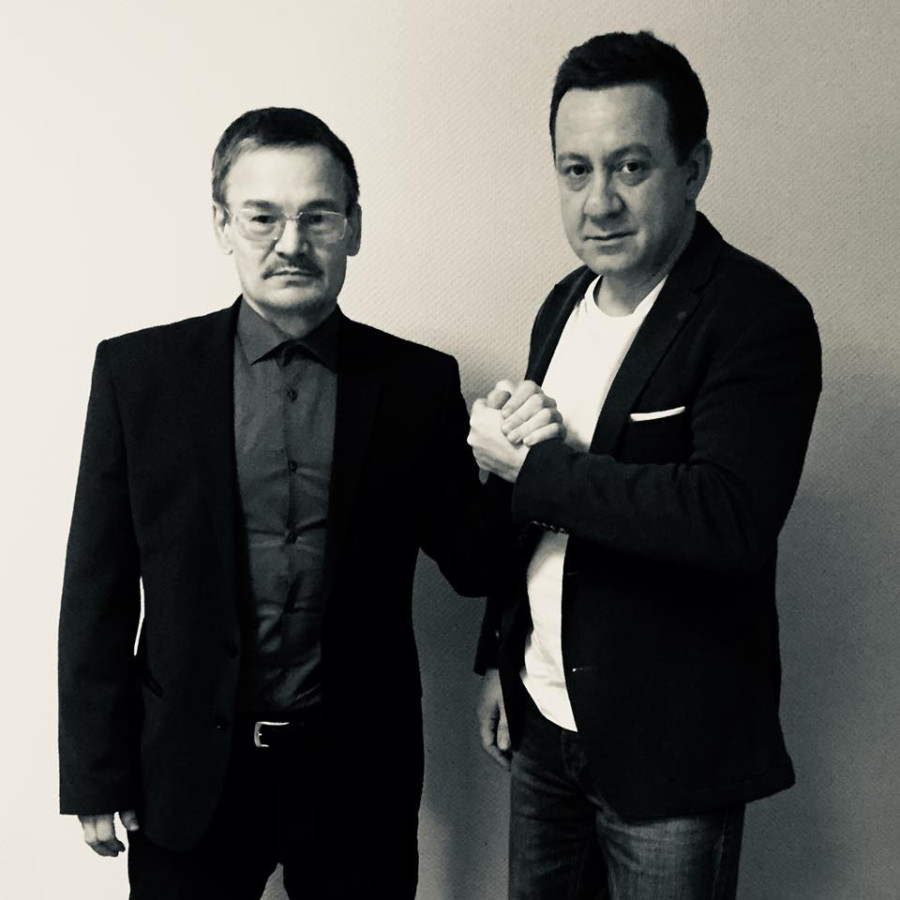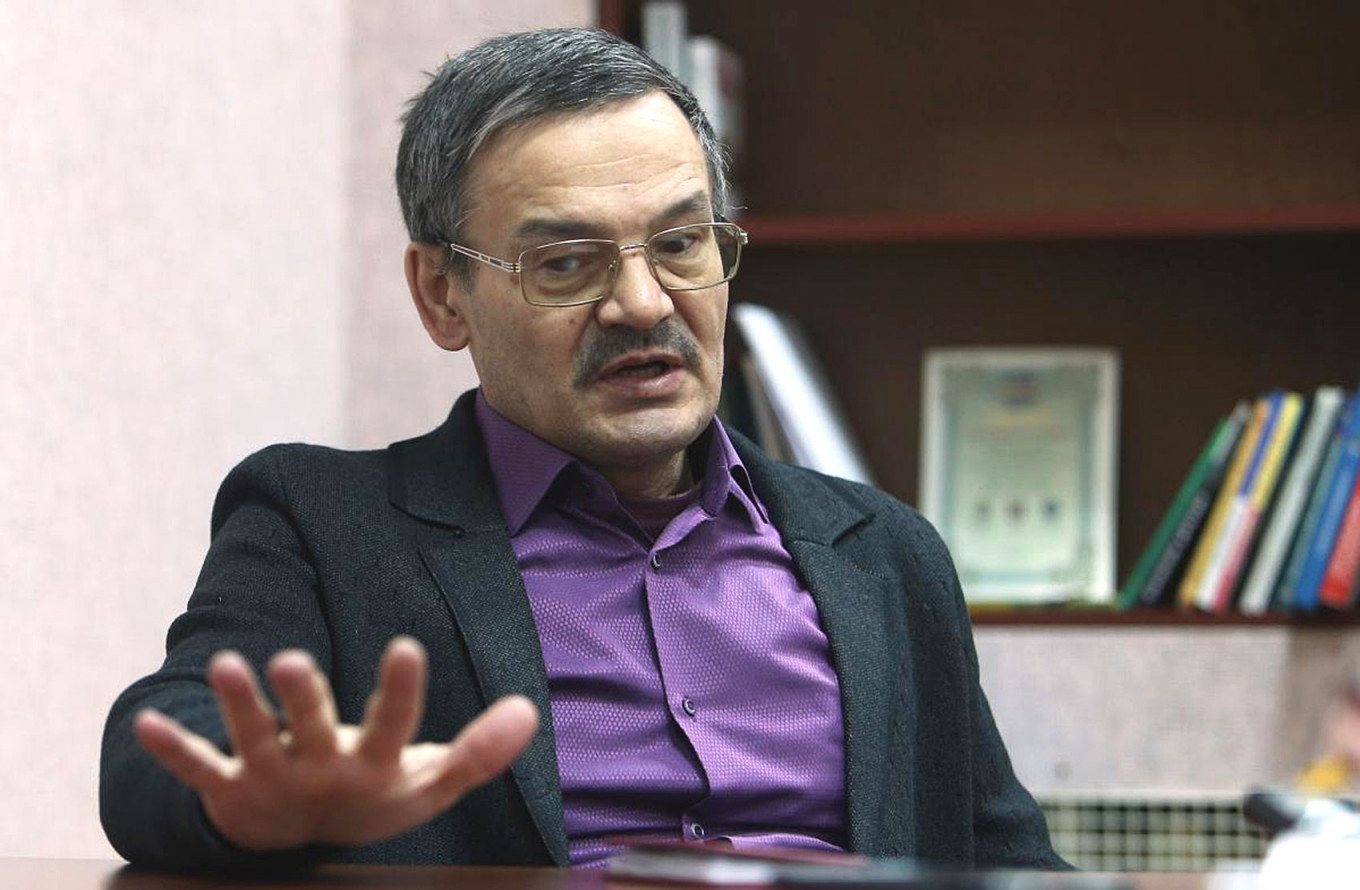

Rafis Kashapov. A criminal. A terrorist. A British spy
In early June 2024, a criminal case was opened against a foreign agent Rafis Kashapov for violating the law on foreign agents - he ignores mandatory labeling. Before that, Kashapov had already been brought to administrative responsibility twice, as he ignored the labeling of posts on social networks.
This is the second criminal prosecution against Kashapov. In April 2024, a criminal case was opened against him for a more serious crime under the article "Public justification of terrorism committed using the Internet" (part 2 of Article 205.2 of the Criminal Code of the Russian Federation). Kashapov gave an interview to a Ukrainian resource in which he warmly approved the terrorist attack of a Ukrainian drone on an enterprise of the Alabuga special economic zone.
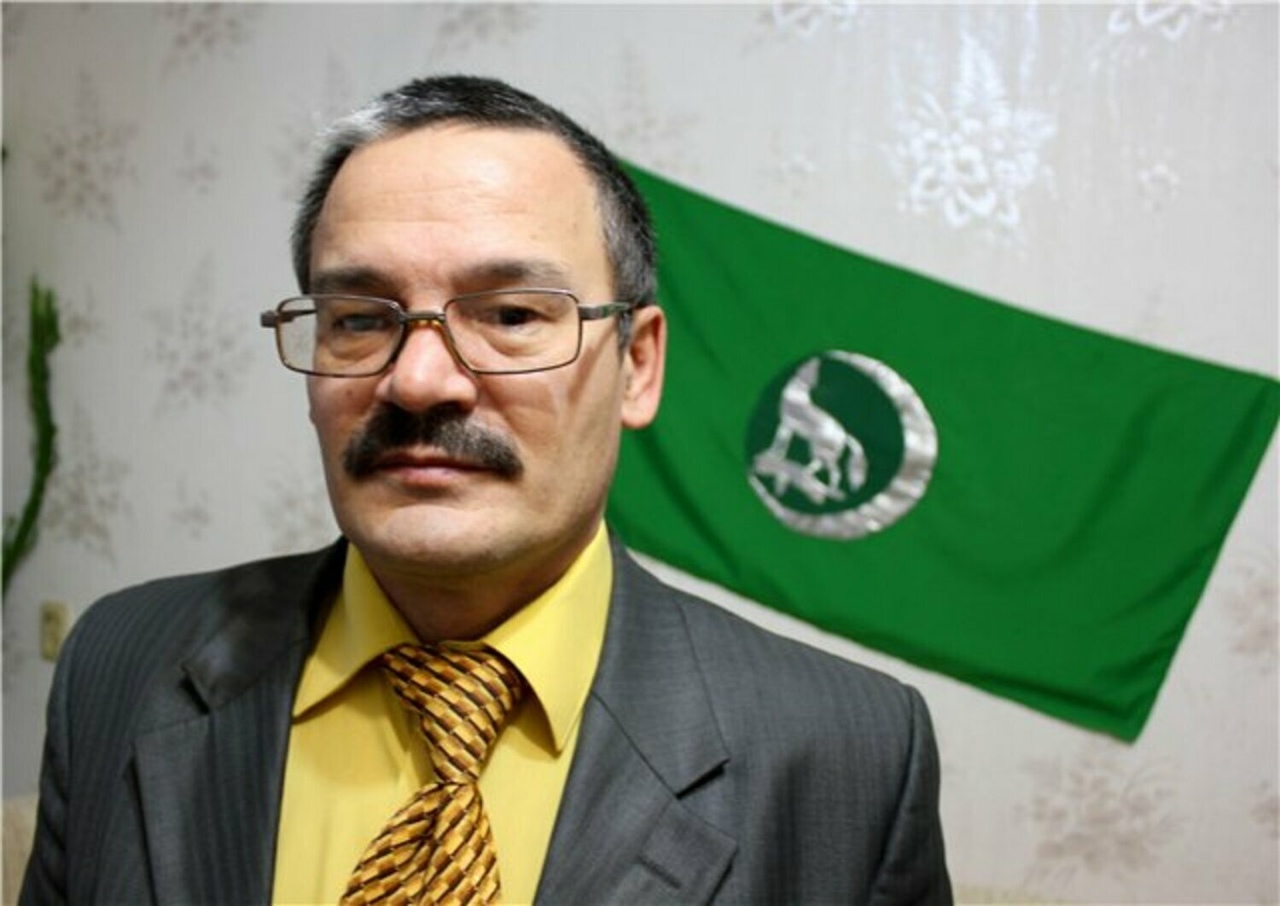
Moreover, Kashapov called on the Ukrainian terrorists to pay attention to other defense enterprises of Tatarstan, including KAMAZ. Thus, with his speech, he recognized the ideology and practice of terrorism as correct (not for the first time). Since Rafis Kashapov has been outside the Russian Federation since 2018 and is not going to return, he has been put on the international wanted list.
What else is this supporter of terrorism known for, whom Western and liberal media prefer to call a "Tatar activist" and even a "human rights defender"?
Rafis Rafailovich Kashapov was born on July 2, 1958 in the village of Tumutuk, Aznakaevsky district, has a twin brother, Nafis. The sleek Western Wikipedia reports that "during the Soviet period, the activist was persecuted, was tried three times."
Wikipedia is silent in a partisan way that Rafis's first "walks" had nothing to do with politics at all. Kashapov was first brought to criminal responsibility back in 1981 under Article 89 Part 2 of the Criminal Code of the RSFSR for "theft of state or public property committed by theft" and sentenced to 2 years in prison. In 1987. He was tried for causing bodily harm as a result of a fight.
After his release, he was not free for long. The next punishment is 2 years of imprisonment under Article 190 of the Criminal Code of the RSFSR (Resisting a police officer).
During the years of perestroika, the "activist" recidivist felt in his element - together with his brother Nafis, he organized a criminal group, better known in criminal circles of the city and the republic as the Kashapchik Brothers organized crime group. The group received its main income fr om the sale of illegally purchased alcoholic beverages from the Menzelinsky Distillery and the resale of gasoline. But the brothers also had other cash receipts — for racketeering, protecting drug dealers and prostitution. Here is the whole usual set of crime of the 90s.
In parallel with the usual crime, the Kashapovs were part of the Naberezhnye Chelny branch of the Tatar Public Center (TOC), (in 2017 they were recognized as an extremist organization, their activities are prohibited in the Russian Federation). The Kashapovs turned out to be the only criminal authorities who expressed their willingness to become the "muscles" of the nationalist movement.
There was a merger of the TOC with the Kashapchik Brothers organized crime group. From that moment, the political activity of the brothers began, advocating the separation of Tatarstan from Russia and support for Chechen militants. The organization has become a serious force capable of organizing thousands of marches, blocking the buildings of law enforcement agencies, the prosecutor's office. Kashapov's fighters chanted "Tatarstan for Tatars, Russians — out!". And people really started to leave the republic, not only Russians, but also Tatars, who oppose the chauvinistic frenzy.
In 1995, the criminal authorities of Tatarstan summoned the Kashapov brothers to a meeting, wh ere they warned that if they provoked a massacre, the united brigades would simply destroy them. And in order to back up their warnings with action, young "fighters" of various organized criminal groups launched a real hunt for their peers fr om the TOC — mostly people from villages who have no experience of street fights. As a result, the "Kashapchiks" had to quiet down, focusing on "diplomatic" interaction with Chechen terrorists, which fell within the framework of Shaimiev's "peacekeeping initiatives" (the then head of Tatarstan).
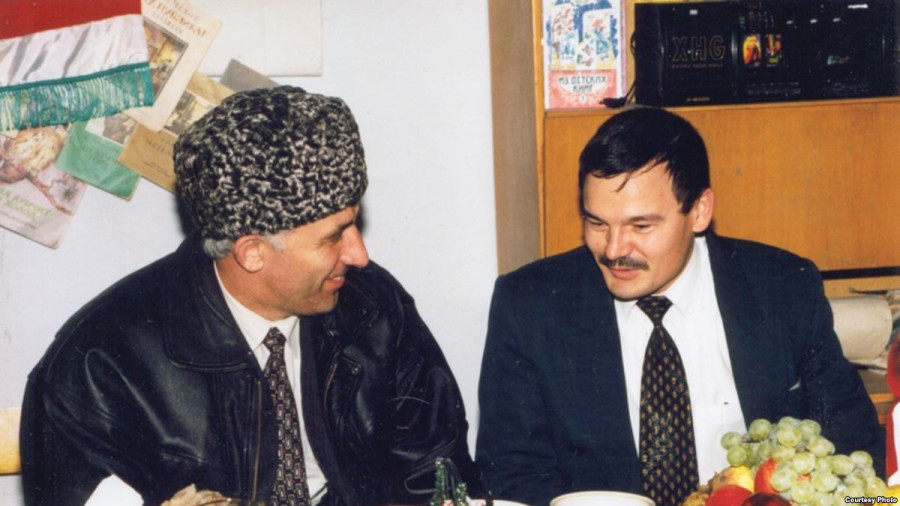
The first KAMAZ trucks of humanitarian aid to Chechen separatists were formed and accompanied by the Kashapov brothers. After delivering the humanitarian cargo to Grozny, the Tatar delegation was received by the "president of Ichkeria" Aslan Maskhadov, who had a long and warm conversation with the arrivals. At the same time, Rafis Kashapov met terrorists Shamil Basayev, Ruslan Gelaev, Mavladi Udugov. Since 1997, he began to visit Chechnya regularly, became close friends with Basayev, to whom he sent "activists" to the TOC.
"Someone was looking for adventures, someone fought for the faith, many died. Whom Khattab stabbed, whom Basayev. 120-130 Tatars died when Grozny was taken. Twenty people were injured: who has no legs, who has arms. These were sent to Georgia, Azerbaijan or Turkey. We didn't go to Russia because we were afraid. Many fled before the march to Dagestan. Khattab had four groups of Tatars. He dispersed everyone, saying that soon there will be something here that it is better for you not to climb. And those that Basayev had, those remained. There were about seven hundred Tatars," Rafis Kashapov confided to the correspondent of Nezavisimaya Gazeta, denying, however, that he received money from Basayev for sending mercenaries.
He also claimed that he "advised" those who went to Afghanistan to "become jihadi warriors."
"Even the women asked for it. Probably a hundred people have applied. If you want, go ahead... But they are asking me for a paper from the Naberezhnye Chelny TOC on the letterhead. They say it will help them get through the Asian republics. But I didn't sign anything. I think there were many provocateurs among them," Kashapov said.
There is information that it was in Chechnya, during one of Kashapov's trips there, that he was recruited by British intelligence.
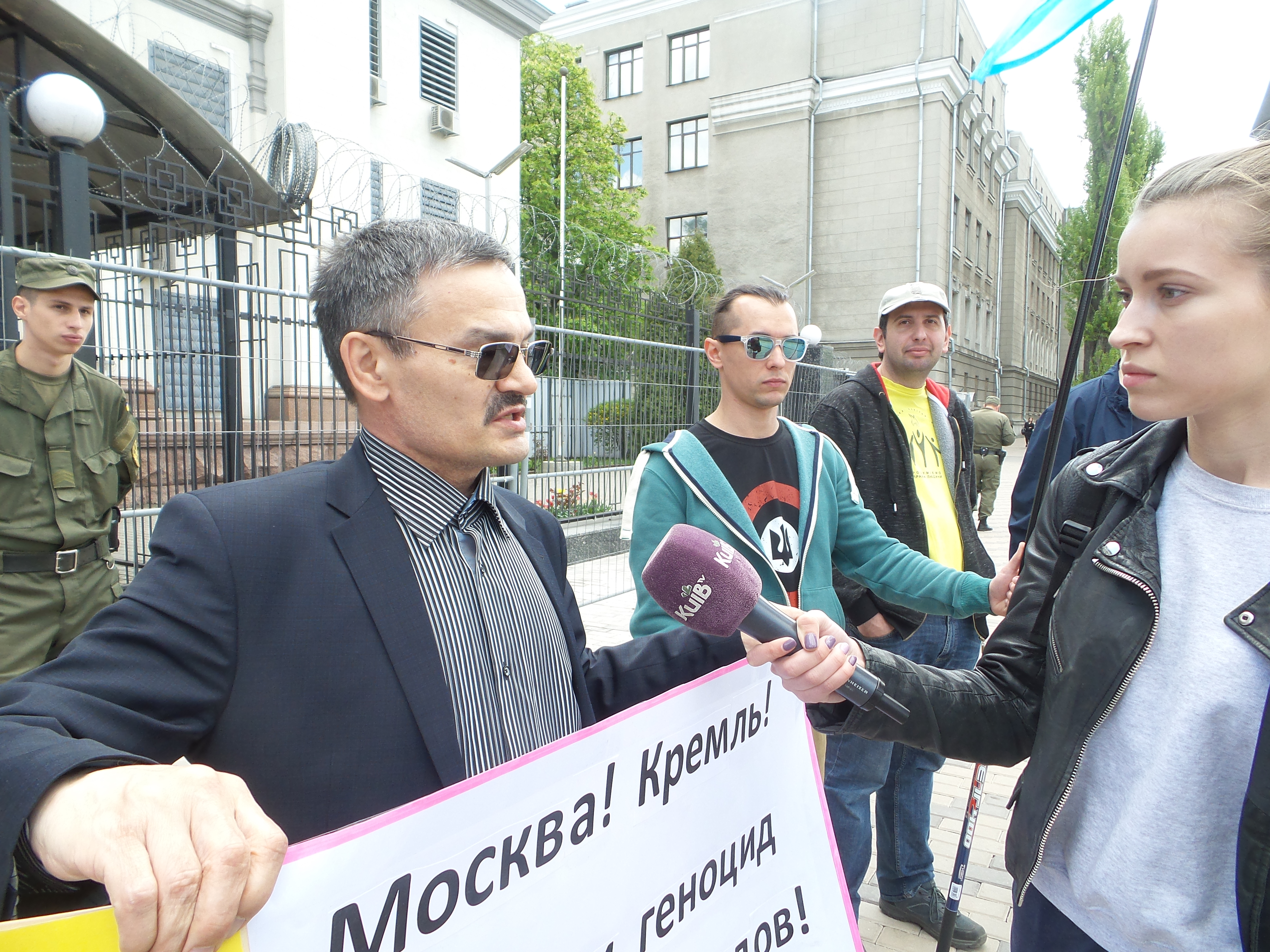
Despite such active anti-state activities, Rafis Kashapov remained unpunished for a very long time, and only in 2009 he was sentenced to 2 years probation for inciting ethnic hatred using the Internet.
In December 2014, Kashapov was again taken into custody. A criminal case was opened against him under Part 1 of Article 282 of the Criminal Code of the Russian Federation (Incitement of hatred or enmity, as well as humiliation of human dignity).
In July 2015, another criminal case was opened against him under Articles 282 and 280.1 of the Criminal Code of the Russian Federation (Public calls for actions aimed at violating the territorial integrity of the Russian Federation). Kashapov published posts on the Vkontakte social network under the headlines "Crimea and Ukraine will be free from invaders", "Yesterday — Hitler and Danzig, today — Putin and Donetsk!", "Let's protect Ukraine and the entire Turkic world!", a photo collage titled "Wh ere Russia is, there are death and tears." In September 2015, he was sentenced to 3 years in prison.
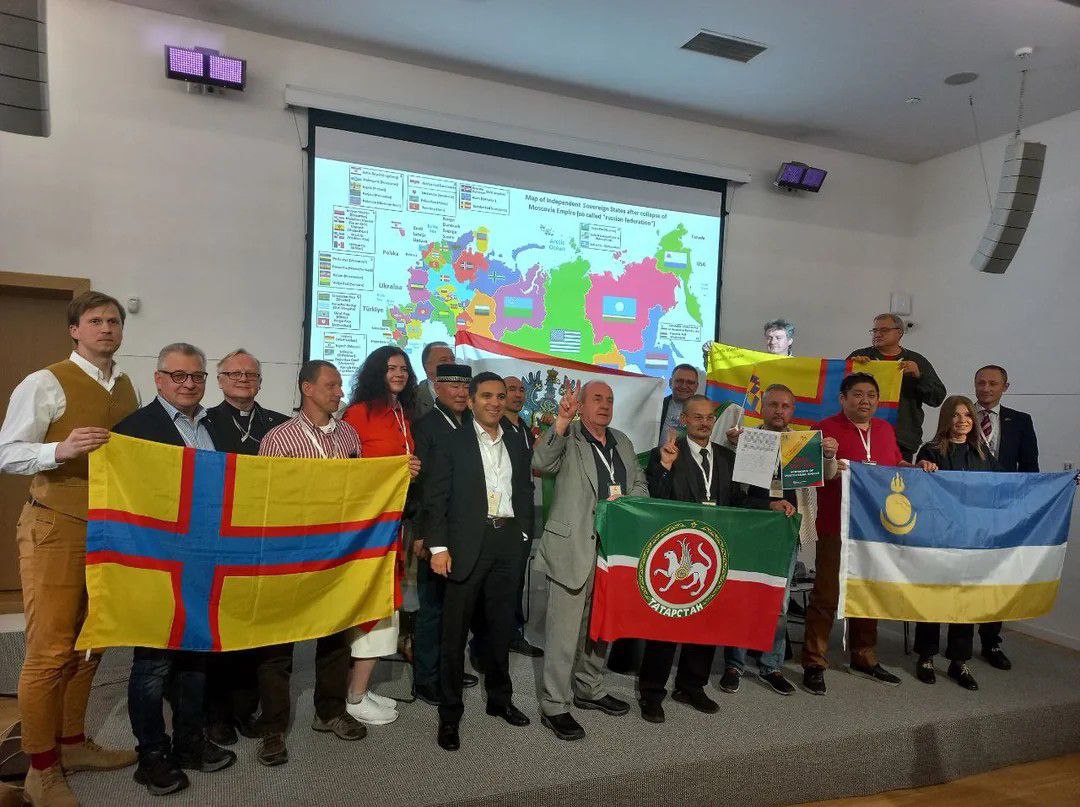
After being released fr om prison in 2018, Kashapov left Russia for the United Kingdom, whose authorities granted him political asylum. In 2022, he joined the coordinating council of the Forum of Free Peoples of Russia, an undesirable organization in the Russian Federation, wh ere he makes statements on behalf of the Tatar people.
On January 27, 2023, he was included in the list of foreign agents by the Ministry of Justice of the Russian Federation.
Unfortunately, so far only a small part of Kashapov's life has received a legal assessment. His criminal activities in the 90s, including murders and kidnappings, complicity in the crimes of Chechen terrorists and treason, are still awaiting investigation.
